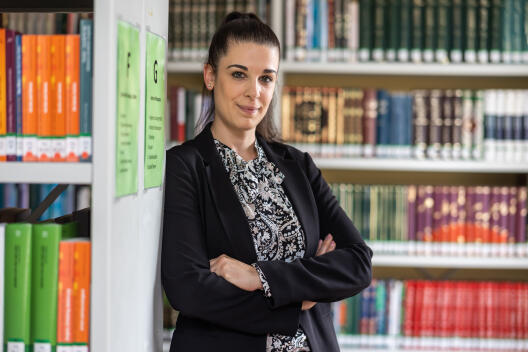“Islamic theology is only just beginning to see gender research”
Researchers will be discussing the further development of the nascent discipline at a conference on gender issues in Islamic theology from 11-13 May

Press release from 08 May 2023
According to researchers, women’s and gender studies still play a subordinate role in Islamic theology. “This is because the discipline of Islamic theology is itself still young in Germany and is only just establishing itself. The focus is on classical disciplines such as Quranic studies, the teaching of Islamic norms and systematics”, says Prof. Dr. Dina El Omari from the Cluster of Excellence “Religion and Politics” and from the Islamic Theological Gender Research Unit at the University of Münster. “While considering women’s and gender studies necessary, many in the discipline attach more importance to the classical disciplines”. The question of what role gender research should play in Islamic theology in the future will be explored at a conference at the Cluster of Excellence from 11 to 13 May.
“A look at international research shows that there is a great deal of research, activism and projects on Islamic women’s and gender studies”, says El Omari. “But this research is still unsystematized in the sense that it is not an independent theological discipline”. There is also still a struggle over the disciplinary categorization of women’s and gender studies. Featuring young women scholars, the conference will address these issues in its 11 panels. There will also be a short film screening on the evening of 12 May. The event is organized by the Centre for Islamic Theology (Prof. Dr. Asmaa El Maaroufi) and the Cluster of Excellence “Religion and Politics” (Prof. Dr. Dina El Omari) at the University of Münster, in cooperation with the Oriental Seminar at the University of Cologne (Prof. Dr. Katajun Amirpur).
El Omari herself has produced a strong example of interpreting the Quran in a gender-equitable way, arguing in her book Quranic Gender Roles in Creation and Eschatology (Herder, 2021) for a context-sensitive reading of the holy scripture. Doing so enables us to understand the patriarchal elements in the Quran as products of the social and political environment of late Arab antiquity, while emphasizing those passages that see the relationship between man and woman as equal. “What then becomes clear is that Islam and feminism are compatible”, says El Omari. (tec/vvm)
Registration: gender.islamischetheologie@uni-muenster.de
Further information: https://www.uni-muenster.de/ZIT/interkulturelle_re-ligionspaedagogik/arbeitsstelle_islamisch-theologische_gen-derforschung/Tagung_Eine_Frage_des_Geschlechts.html

